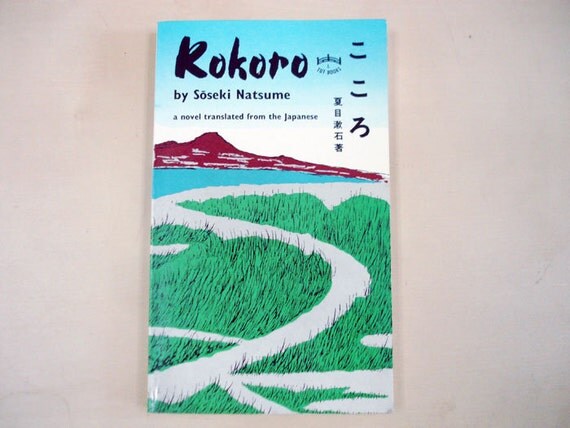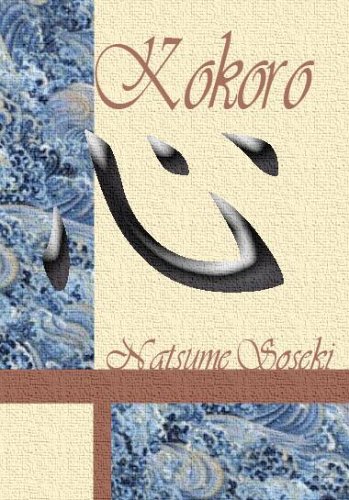

Next Section Kokoro Summary Buy Study Guide How To Cite in MLA Format Lin, Alexander. Through the tortured and melancholy character of Sensei, Natsume showed the alienation and guilt that he himself felt personally from his separation from the traditional ethics of Japan, along with his struggle to find a solution. My first exposure to this book was through Edwin McClellan’s lovely 1957 version. First published in 1914, Natsume Soseki’s timeless classic Kokoro has been graced with three translations. In his novel, Natsume deals primarily with the psychological and ethical problems dealt with by the Meiji era intellectuals, who had to reconcile their Confucian dedication to the public with the individualism imported from the West, and the new unabashedly individualistic tide of thought which had emerged even while Meiji was alive. Kokoro (Heart) offers deep insight into the human psyche and investigates internal struggles and the darker sides of admiration, envy and temptation. That year, two years had passed since the death of Emperor Meiji, under whose rule Japan saw its first period of intense modernization, and in two years Natsume himself would be dead. There were many times when I felt I lived utterly alone, remote and cut off from the world around me.Kokoro (こゝろ), written by the famous Japanese author Natsume Soseki, was published in serial form by the Japanese newspaper Asahi Shimbun, for which he worked, in 1914. But it’s within your power to help her understand, I thought, and yet you’re too cowardly to do so, and I grew still sadder.


In my heart, though, I was saddened that the person I loved and trusted most in the world could not understand me. “Whenever my wife asked what the point of my study was, I responded with a bitter smile. I would love to hear others’ thoughts on this and attached is one of my favorite quotes Published here in the first new translation in more than fifty years, Kokoromeaning 'heart'is the story of a subtle and poignant friendship between two unnamed characters. If you haven’t had a chance to read it I cannot recommend it enough. No collection of Japanese literature is complete without Natsume Soseki's Kokoro, his most famous novel and the last he completed before his death. I honestly feel like I’ve been punched in the gut. But the novel concludes with Sensei’s testament. I was reading this on the subway and I thought that the main character would manage to get back and visit his Sensei’s wife at the very least. I think what really struck me about Kokoro is the ending. And I found it to be pleasantly a little bit easier to read than the aforementioned title. I had originally started reading this book after I finish No Longer Human by Osamu Dazai.


 0 kommentar(er)
0 kommentar(er)
